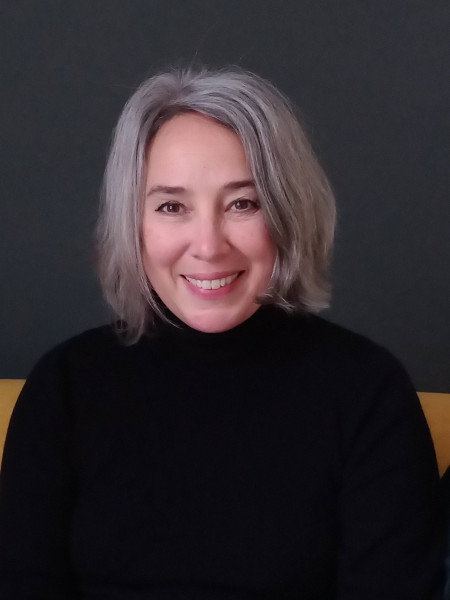
Dr Julia Molinari
Pace Lecturer
Biography
Professional biography
I joined the Open University's Graduate School as a part-time Lecturer in Professional Academic Communication in English (PACE) in December 2021. I formerly taught and researched academic writing at the University of Nottingham, UK and the University of Padova, Italy. Professionally, I also have a background in academic translations, editing and proofreading. I was awarded a PhD from the University of Nottingham, UK, in 2019 thanks to the supervision of Professor Pat Thomson (School of Education) and Professor Andy Fisher (Department of Philosophy). My previous studies include an MA (Hons) in Philosophy and Logic from the University of St Andrews, UK; an MEd (Applied Linguistics) from the Open University, UK; a PGCTEAP (Post Graduate Certificate in Teaching English for Academic Purposes) from the University of Nottingham, UK; and a European Baccalaureat from the European School, UK.
I am a Senior Fellow of the Higher Education Academy (SFHEA) and am bilingual English-Italian and fluent in French.
You can find PACE on BlueSky: https://bsky.app/profile/pacespaceou.bsky.social
Research interests
My research expertise is in academic writing and language, EAP (English for Academic Purposes), Academic Literacies, sociolinguistics, philosophy, sociology, education, and Artificial Intelligence (AI), having co-authored the Graduate School's Guidance on AI in doctoral writing (2025) and having been Learning Adviser on the following introductory short courses to AI: LG003, LG007, and LG010.
I conduct and supervise research on academic writing and communication practices that seek to question, disrupt, and re-visit received wisdoms about how and why academic knowledge is communicated in some ways but not others as well as why some forms are more valued than others.
As an ethical scholar committed to EDIA (Equality, Diversity, Inclusion, and Accessibility) and decolonialty, I am acutely concerned about who gets to write academically, how and why. To this end, I have two active Open Societal Challenges, both of which are open to relevant collaborations, funding, and further development:
- 154 - Making artificially intelligent academic writing human(e)
I welcome research collaborations and PhD proposals that deal with:
- histories, cultures, and traditions of academic communication
- theories and practices of academic writing (and their role in including/excluding different research communities)
- higher education policies and practices, and the role that academic writing plays in maintaining these (e.g. citation practices, metrics, the REF, etc.)
- transformative sociologies and philosophies of academic writing (especially Critical Realism and Academic Literacies)
- academic writing practices and their implications for social justice, equality, inclusion, diversity, and accessibility
- multimodal and multilingual approaches to academic communication
- creative approaches to academic writing
- performativity, plagiarism, and ethics as they relate to academic writing
- emerging and evolving academic writing pedagogies, and related assessment practices
- open access, the politics and economics of academic publishing, and alternative publishing practices (and how academic writing may be affected by pluralising and democratising knowledge).
In my PhD thesis, I argued that academic writing takes many forms and cannot be reduced to standard templates. Using a critical realist lens, I concluded that what makes writing academic are its emergent socio-academic practices, not its constituent forms. This matters because it allows us to re-imagine and think about academic writing as an evolving practice of possibilities and affordances rather than as a set of static and universal conventions. A version of the thesis is available as a published Open Access research monograph (Bloomsbury, 2022). I am keen to develop a deeper and more nuanced understanding of critical realist philosophies to further theorise the knowledge-oriented practices involved in academic communication, especially in the context of multimodality, emancipatory and democratising pedagogies, and new technologies, such as AI.
Teaching interests
Pedagogies of doctoral writing and supervision
Impact and engagement
Project Lead for 'The future of doctoral writing: Critical dialogues towards a manifesto' co-Lead Dr Jackie Tuck. Seminar funded by the OU Graduate School and British Association of Applied Linguistics and Cambridge University Press
External collaborations
Coming soon.
International links
Coming soon.
Publications
Book
What Makes Writing Academic: Rethinking Theory for Practice (2022)
Book Chapter
Academic writing as political (2026)
What Makes Academic Writing Human(e): A Critical Realist Response (2026)
Critical Realism: What can it do for EAP? (2022)
Re-imagining Doctoral Writings as Emergent Open Systems (2021)
Journal Article
A rational case for a critical realist theory of academic writing (2024)
The limits of translingualism: In search of complementary forms of resistance (2022)
Other
Position Statement and Guidance on Generative AI and Doctoral Education (2025)
Thesis
What makes writing academic: an educational and philosophical response (2019)